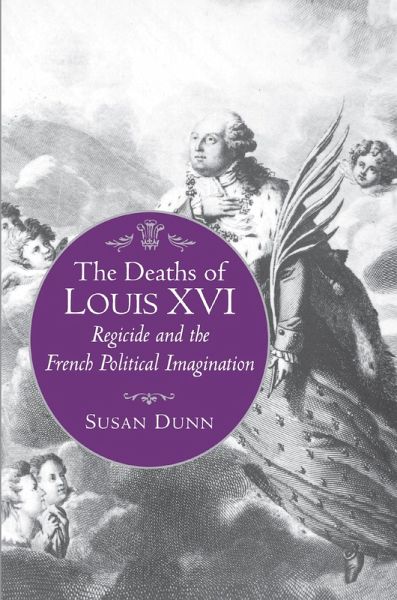
The Deaths of Louis XVI (eBook, ePUB)
Regicide and the French Political Imagination
Versandkostenfrei!
Sofort per Download lieferbar
26,95 €
inkl. MwSt.
Weitere Ausgaben:

PAYBACK Punkte
13 °P sammeln!
The public beheading of Louis XVI was a unique and troubling event that scarred French collective memory for two centuries. To Jacobins, the king's decapitation was the people's coronation. To royalists, it was deicide. Nineteenth-century historians considered it an alarming miscalculation, a symbol of the Terror and the moral bankruptcy of the Revolution. By the twentieth century, Camus judged that the killing stood at the "crux of our contemporary history." In this book, Susan Dunn investigates the regicide's pivotal role in French intellectual history and political mythology. She examines h...
The public beheading of Louis XVI was a unique and troubling event that scarred French collective memory for two centuries. To Jacobins, the king's decapitation was the people's coronation. To royalists, it was deicide. Nineteenth-century historians considered it an alarming miscalculation, a symbol of the Terror and the moral bankruptcy of the Revolution. By the twentieth century, Camus judged that the killing stood at the "crux of our contemporary history." In this book, Susan Dunn investigates the regicide's pivotal role in French intellectual history and political mythology. She examines how thinkers on the right and left repudiated regicide and terror, while articulating a compassionate, humanitarian vision, which became the moral basis for the modern French nation.
Their credo of fraternity and unity, however, strangely depoliticized this supremely political act of regicide. Using theoretical insights from Tocqueville, Arendt, Rawls, Walzer, and others, Dunn explores the transformation of violent regicidal politics into an apolitical cult of ethical purity and an antidemocratic nationalist religion. Her book focuses on the fluidity of political myths. The figure of Louis XVI was transmuted into a Joan of Arc and a deified nation, and the notion of his sacrifice contributed to the disquieting myth of a mystical community of self- sacrificing citizens.
Their credo of fraternity and unity, however, strangely depoliticized this supremely political act of regicide. Using theoretical insights from Tocqueville, Arendt, Rawls, Walzer, and others, Dunn explores the transformation of violent regicidal politics into an apolitical cult of ethical purity and an antidemocratic nationalist religion. Her book focuses on the fluidity of political myths. The figure of Louis XVI was transmuted into a Joan of Arc and a deified nation, and the notion of his sacrifice contributed to the disquieting myth of a mystical community of self- sacrificing citizens.
Dieser Download kann aus rechtlichen Gründen nur mit Rechnungsadresse in A, D ausgeliefert werden.













